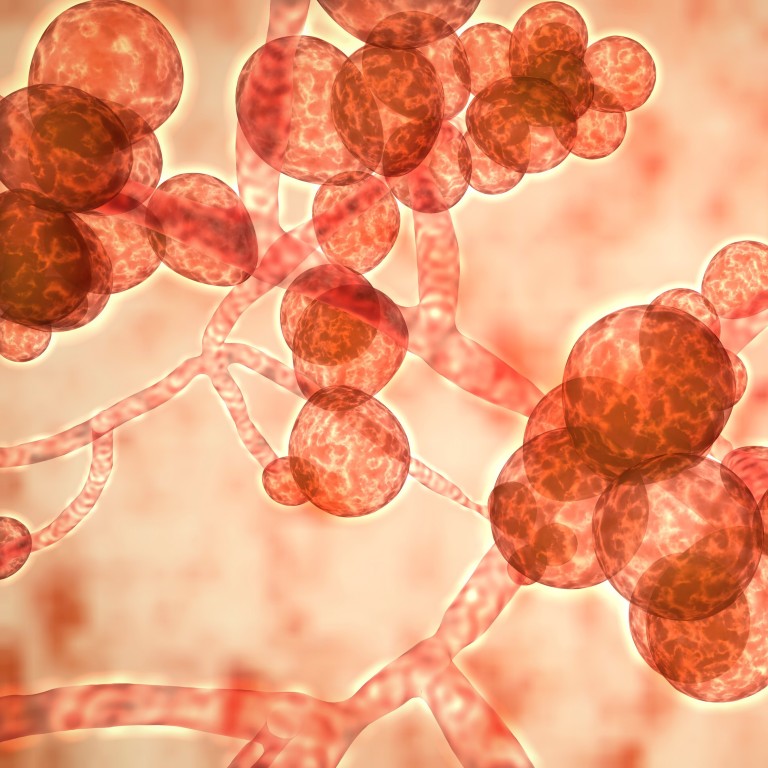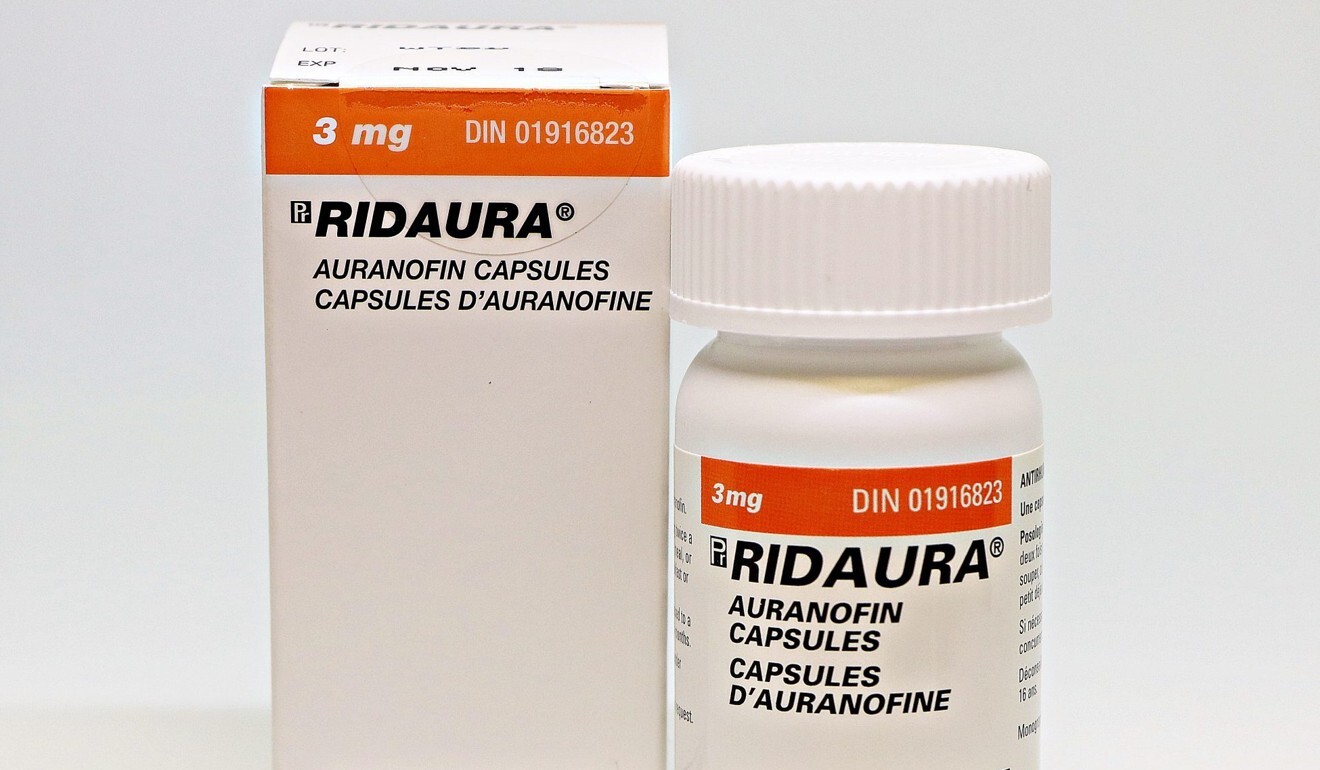
Drug used to treat rheumatism could also boost effectiveness of antibiotics against superbugs, Hong Kong study finds
- The drug, known as auranofin, could present an alternative to the costly and time-consuming process of developing new antibiotics to treat superbugs
- Hong Kong records some 700 deaths a year from so-called superbugs, which are bacteria that have developed a resistance to commonly used treatments
A drug used to treat rheumatic disorders can resurrect the efficacy of so-called last-resort antibiotics to kill superbugs in an animal model, a study by Hong Kong’s top university has found.
The findings of the research, led by University of Hong Kong (HKU) scientists and published in Nature Communications last month, could make existing antibiotics more effective in killing superbugs – bacteria that are resistant to conventional treatments and can prove fatal.
The researchers said the antirheumatic gold drug, auranofin, could be repurposed to inhibit two resistance enzymes, MBL and MCR, used by drug-resistant bacteria to deactivate antibiotics like colistin, a “last resort” used to treat superbugs.

“Instead of developing a new antibiotic, which takes eight to 10 years, we repurpose or clinically use the drug to inhibit the resistance enzymes in the bacteria and change [the superbugs] into normal bacteria, which can then be killed by the antibiotics,” said Professor Sun Hongzhe, chair professor of HKU’s research division for chemistry.
“Superbugs can normally chop the antibiotics to pieces. But now we can change the superbug into normal bacteria by inhibiting the resistance enzymes.”
Auranofin binds to the resistance enzymes MBL and MCR, then kicks out the crucial zinc ions in both, making them dysfunctional.
The study also found that the drug can boost the potency of antibiotics, allowing them to achieve the same level of effectiveness against the superbug E coli with a lower dose.
The scientists have filed a patent in the US and hope to begin clinical trials soon.
Hong Kong battling potentially deadly superbug that could have spread amid Covid-19 fight
The World Health Organization has declared antimicrobial resistance one of the top 10 global public health threats.
At least 700,000 people die each year due to drug-resistant diseases, and the phenomenon could cause as many as 10 million deaths a year by 2050, according to a 2019 report published by the UN Interagency Coordination Group on Antimicrobial Resistance.
Hong Kong is already grappling with superbug infections that result in about 700 deaths a year in public hospitals.
Globally, the overuse of antibiotics has been blamed for creating superbugs.

